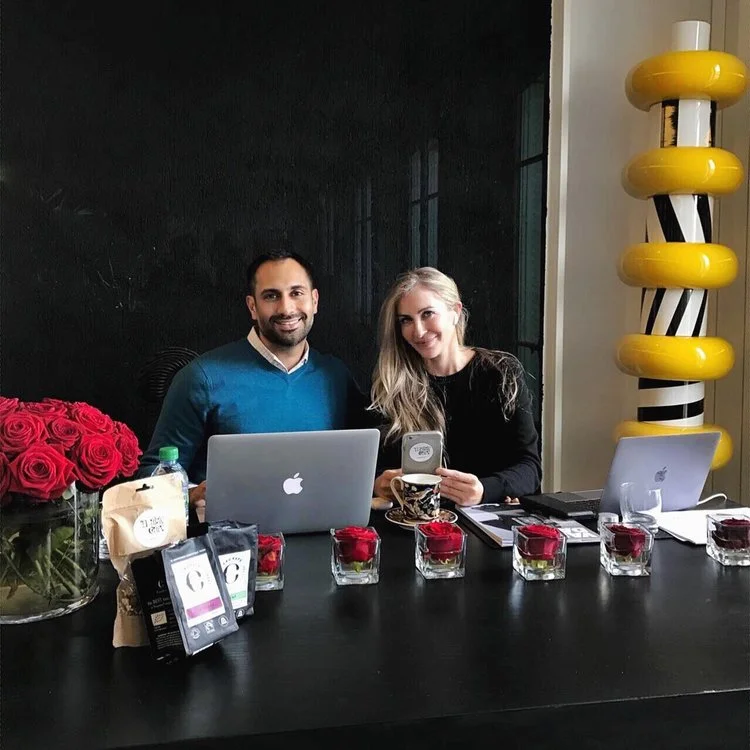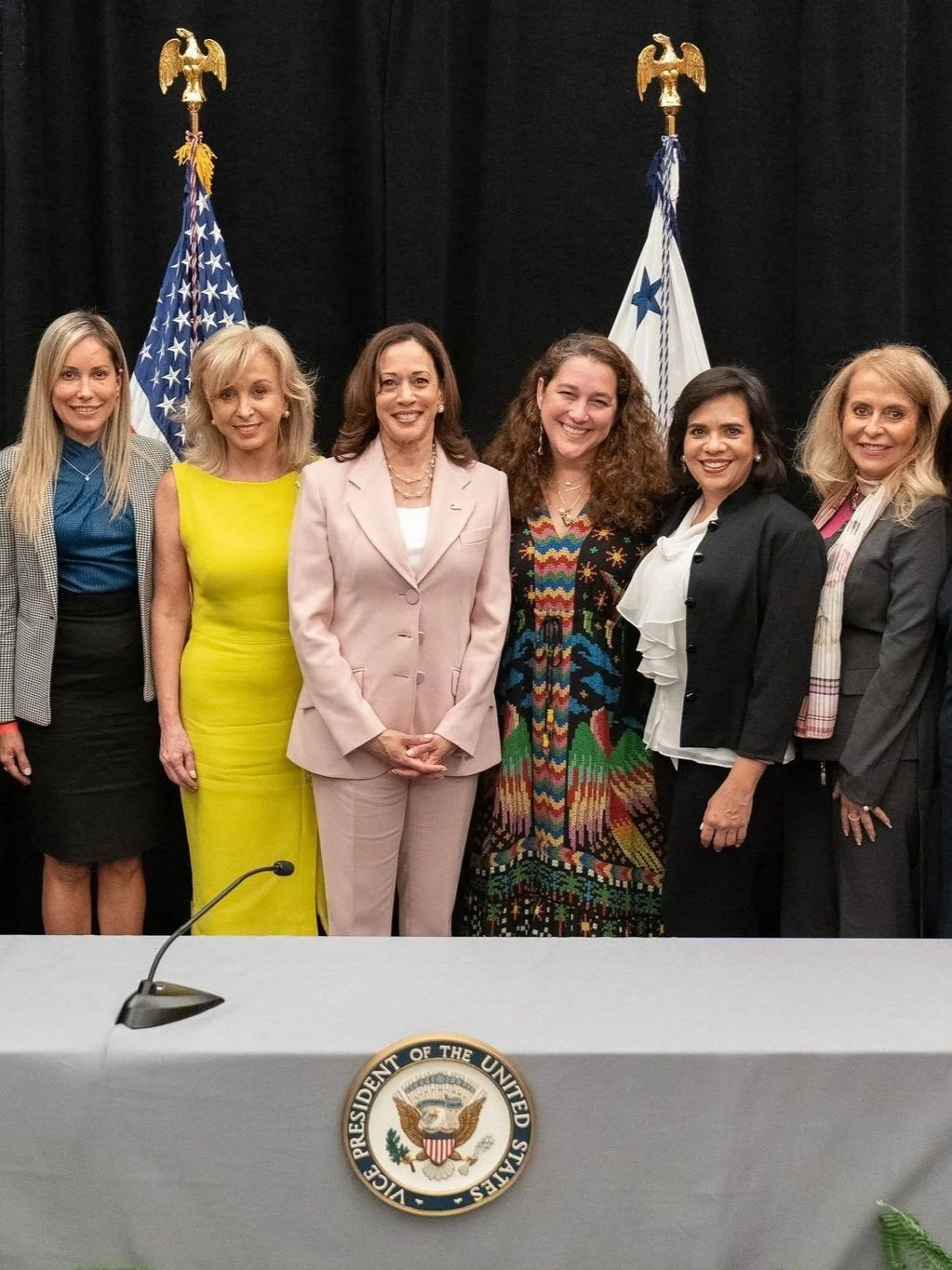With Sachin Khanna, CEO of SonicCloud. It was my deafness and dyslexia that directly informed my decision to invest in this tech start-up.
I’m often asked in interviews about the hardest obstacles I’ve had to overcome in my career. And yes, I’ve certainly faced a fair few challenges over the years, including the military coup-d’état in Caracas where I had set up my first boutique, Cabus. However, one of the biggest obstacles that I have had to overcome is my dyslexia. Having said that, there are many positives to the condition, which affects at least one in ten of us, and it thanks to my dyslexia that everything else actually seems easier.
I didn’t learn I was dyslexic until I was in my forties, and it was my friend Diana D’Hendecourt who helped me discover that I had the condition as she was struggling with her son's dyslexia. Being half-deaf meant that I had already been struggling to hear and communicate with others every day, and the dyslexia explained why I had also had more difficulty than most processing information and remembering dates and names.
At school, my teachers didn’t understand and couldn’t explain my struggles, and it was my love of art and creativity, science and math that helped me communicate with the world, and make up for my difficulties with English literature, grammar and history, even though I loved reading. And although I was good at solo sports like swimming and running, I couldn't play team sports. All this meant that my teachers basically thought I would only focus on what I really cared for and heard what I wanted to hear, breaking rules rather than paying attention to them, and that I just basically insisted on doing things my own way.
I often wondered whether my handicap shaped my strong tone-deaf personality, or whether I had some kind of spectrum disorder as I was always questioning everything over and over again. I'd go through the painful process of undoing everything in order to re-do it again from the beginning, to understand how it was done or made, whether that was how to build a small house, to make a dress from scratch, to make chemical formulas or bake bread!
Everyone's experience of dyslexia is unique, and it can range from mild to severe. But there are many positives to thinking differently, and many people from my partner, to the founder of SonicCloud (one of my tech-investments) to my doctor, psychologist and life coach who have helped me appreciate that. I have also learned that dyslexic people show strengths in particular areas, such as reasoning, and in visual and creative fields.
In his book ‘The Gift of Dyslexia’, fellow dyslexic Ronald Davis explains how the condition changes over time, and that the gift is that of mastery – dyslexics, he says, will be able to master many skills faster than the average person can comprehend or understand them. I have had to rely on non-verbal cues such as body language and mannerisms to understand people and their intentions, and to better express who I am as a person I’ve learned to communicate through fashion and style. At the start of my career, my deafness and dyslexia meant being behind-the-scenes was a comfortable place for me, but it also became impossible to stay there being in the fashion industry and I needed to get out of that safe space. Today, I am the only Latin woman investing her own money in fashion within the male-dominated technology and finance space, which I hope goes to show that with the right support and determination, the individual strengths and talents of dyslexic people can really shine.
It was my deafness and dyslexia that directly informed my decision to invest in SonicCloud. Based in San Francisco, the company creates technology that enriches sound for people like me who suffer from mild to severe hearing loss. And its SonicCloud Streaming service enables us to enjoy everything from TV, movies and music to podcasts, audiobooks and conference calls simply using a Mac computer.
Everything that has happened to me is intrinsically linked, and has helped push me out of that comfort zone and down a path that has been far from normal. I've faced career challenges and personal pitfalls, but friends such as Diana have been my biggest asset. And I actually feel lucky that I was born deaf and dyslexic.












